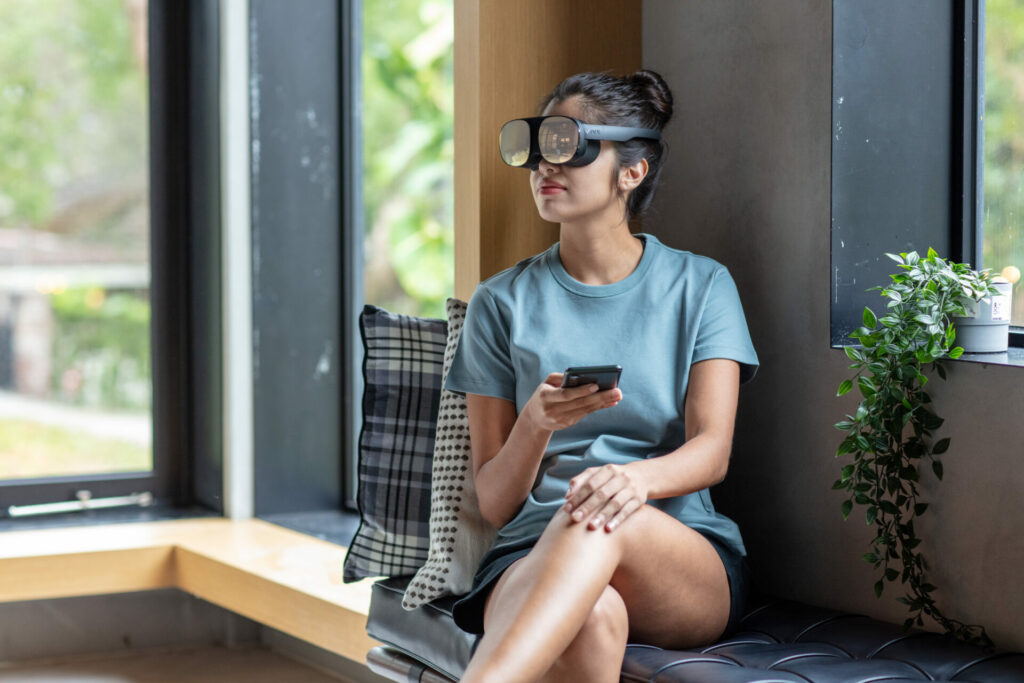Green Learning: The Eco-Friendly Benefits of VR Field Trips
Share this post ▸
April 24, 2024 | Cassie Hauschildt

Takeaways
- Adoption of VR technology in schools for immersive learning experiences.
- Environmental benefits of VR field trips, including reducing carbon footprint and preserving natural habitats.
- Increased accessibility of VR field trips for students with physical disabilities or health issues.
- Promotion of global citizenship and environmental stewardship through VR field trips, fostering empathy and critical thinking.
Schools worldwide are adopting exciting new technologies, like Virtual Reality (VR) to gives students unlimited access to new experiences. These immersive experiences are revolutionizing the way students learn and engage with the world around them. Beyond its educational benefits, VR field trips also hold great promise for the environment itself.
Reducing Carbon Footprint
Traditional field trips require some sort of travel, whether it be school bus, plane, train, or some combination of the three. These journeys not only consume fossil fuels but also contribute to air pollution and traffic congestion. By replacing these physical excursions with virtual ones, schools can significantly reduce their carbon footprint and environmental impact. VR field trips require only minimal energy consumption, primarily from the devices used to access them, making them a greener alternative to conventional travel.
Preserving Natural Habitats
Many of the world’s most biodiverse and ecologically sensitive areas are also the most challenging to access. Remote rainforests, coral reefs, polar regions, or remote islands are often off-limits to traditional field trips due to logistical constraints and environmental concerns. With VR technology, however, students can venture fragile ecosystems such as the Galapagos Islands without disturbing delicate habitats or endangering vulnerable species. By providing immersive, lifelike experiences, VR field trips foster a deeper appreciation for the natural world and inspire conservation efforts aimed at preserving it for future generations.
Access for All
One of the most significant advantages of VR field trips is their accessibility. For students with physical disabilities or health issues that prevent them from participating in traditional outings, virtual experiences offer a new world of options. VR technology transcends barriers of geography, mobility, and socioeconomic status, ensuring that all students have equal access to transformative learning opportunities. VR field trips empower students to explore the wonders of the world and cultivate a sense of environmental stewardship regardless of their circumstances.
Fostering Global Citizenship
As students become connected to the world through social media and the internet, understanding global issues such as climate change, deforestation, and biodiversity loss is essential for cultivating responsible, informed citizens. VR field trips provide a powerful platform for students to become immersed in new environments, experiencing a present and emotional connection to them. VR technology promotes critical thinking, empathy, and a sense of global citizenship. This allows today’s students to be better equipped to become advocates for positive change and champions of environmental sustainability.
In conclusion, VR field trips represent a compelling blend of innovation and environmental stewardship. By harnessing the power of technology to bring the world to our classrooms, we can inspire future generations to cherish and protect our planet. As we embrace the limitless possibilities of virtual exploration, let us also reaffirm our commitment to safeguarding the Earth for generations to come. Learn more about the over 150 VR Field Trips available in the VXR Global Traveler app HERE.

Cassie Hauschildt is the Head of Communications for VictoryXR, the global leader in immersive, spatial education. She studied music, getting her bachelor’s degree from Idaho State University and working on her master’s at Texas Tech University, before pivoting to marketing. She is excited to help teachers discover the power of VR in education.








